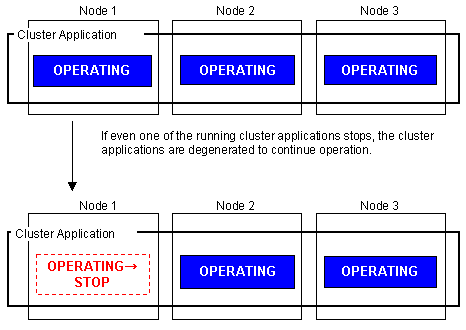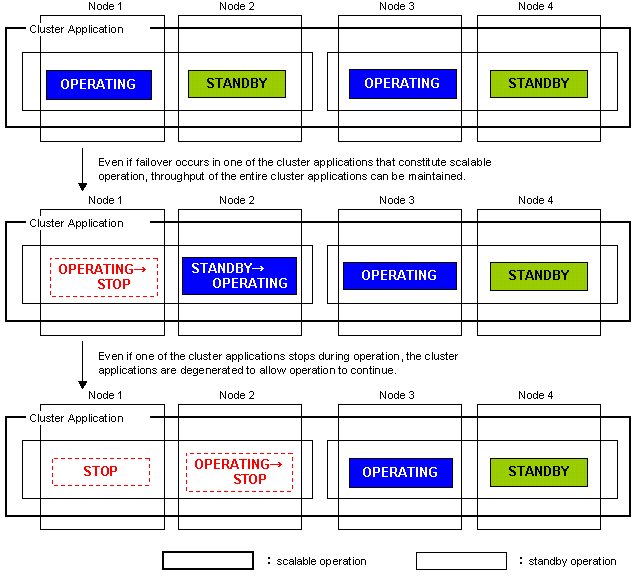

| PRIMECLUSTER Installation and Administration Guide 4.2 (Linux for Itanium) |
Contents
Index
 
|
| Part 1 Planning | > Chapter 2 Site Preparation | > 2.3 Determining the Cluster System Operation Mode |
This section explains the topologies used for scalable operation:
 Scalable
Scalable Definition
DefinitionA cluster system consists of two or more operating nodes, and all the nodes are used for online cluster applications. This operation mode is suitable for parallel jobs that use the I/O load balancing and load sharing on a parallel database.
Advantage
Degenerated operation is possible even if part of the cluster applications stops.
Disadvantage
If part of the cluster applications stops, throughput of the cluster applications cannot be guaranteed because degenerated operation is assumed.
 Failover image
Failover image

Scalable operation can be used in combination with some PRIMECLUSTER-related products. For information on the related products, see the "PRIMECLUSTER Product List. "
 High-availability scalable operation
High-availability scalable operation Definition
DefinitionRefers to the topology in which standby operation is configured for each cluster application that constitutes scalable operation. Suitable for a parallel database for which scalability and availability are required, as well as parallel job execution for which load share/load balance is used.
Standby operation that constitutes scalable operation can be combined with 1:1 standby and N:1 standby, with priority transfer.
Advantages
Even if failover occurs in one of the cluster applications that constitute scalable operation, the throughput of all the cluster applications can be maintained by using a redundant configuration.
Degenerated operation is possible even if part of the cluster applications stops.
Disadvantage
Since a redundant configuration is used, the node usage efficiency is poor during normal operation.
 Failover image
Failover imageThe following illustrates failover when two 1:1 standby operations are combined to enable scalable operation.


Scalable operation can be used in combination with some PRIMECLUSTER-related products. For information on the related products, see the "PRIMECLUSTER Product List. "
Contents
Index
 
|